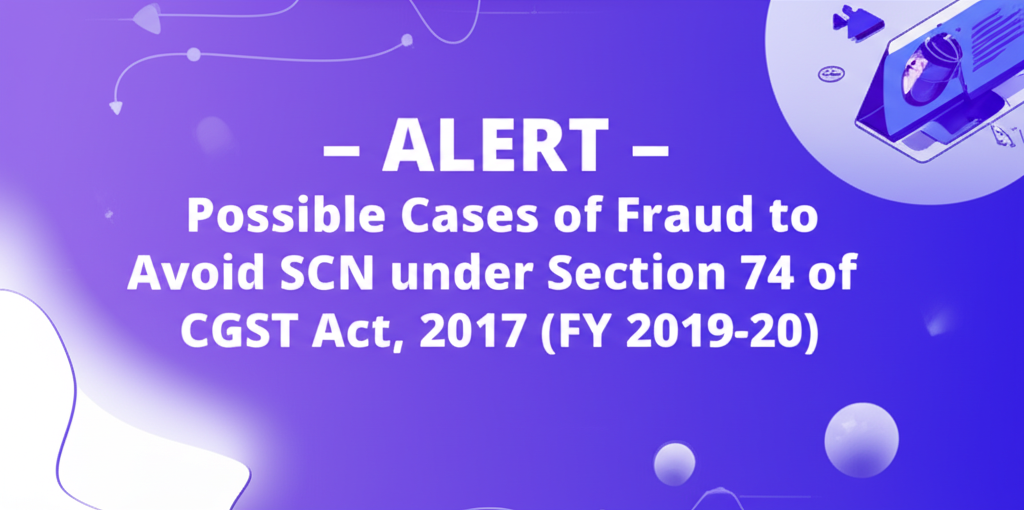Legal Timeline
Under Section 74 of the CGST Act:
-
sec-74(2)-SCN must be issued at least 6 months before the time limit for passing the order.
-
sec-74(10)-Order must be issued within 5 years from the due date of furnishing the annual return.
For FY 2019-20 (with CBIC extensions):
-
Due date for Annual Return: 31 March 2021
-
Last date for adjudication order: 31 March 2026
-
Last date to issue SCN: 30 September 2025
👉 This means FY 2019-20 is currently under high scrutiny.
High-Risk Fraud Areas
-
Works Contractors & Real Estate – non-reversal of ITC on un-booked flats, wrong ITC on commercial vs residential, non-compliance with 1%/5% scheme, suppression of landowner’s share in JDA projects.
-
ITC Issues – availing blocked credits, mismatch with GSTR-2A(especially after introduction of Sec 36(4) restriction), disallowed transitional credit, ITC without valid invoice or supply.
-
Refund Misuse – excess refunds on exports, refunds on ineligible ITC.
-
Suppression of Turnover – mismatch between financials, 26AS, GSTR-1 & 3B, non-disclosure of allied revenues.
-
Circular Billing & Bogus Vendors – fake invoices and circular trading in construction materials(iron& steel,cement etc).
Preventive Actions
-
Reconcile GSTR-1, GSTR-3B, GSTR-9/9C with books of accounts.
-
Reverse ineligible ITC(sec-16 and 17) through DRC-03.
-
Ensure ITC reversal for un-booked flats and commercial portion as per Rule 42/43.
-
Maintain invoices, agreements, e-way bills, possession letters, RERA filings.
-
Voluntary tax + interest payment before SCN reduces penalty.
Key Takeaways
-
If fraud/suppression is established → Section 74 applies (tax + interest + 100% penalty).
-
Even genuine errors now fall under Section 74 (not Section 73).
-
SCNs for FY 2019-20 must be issued by 30 September 2025.
-
Taxpayers with turnover above ₹2 crore should proactively review compliance.
-
A professional review before the deadline can help avoid litigation especially those who have not faced any audit or assessment/scrutiny for FY 2019-20 yet.


